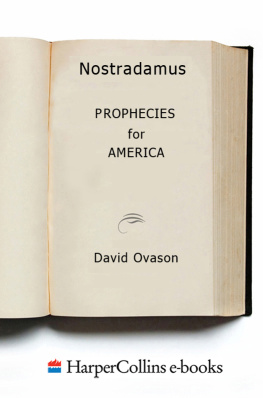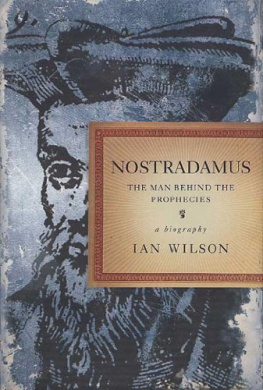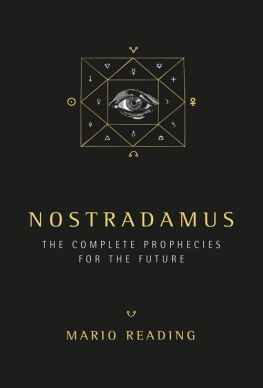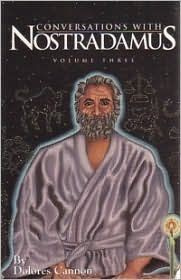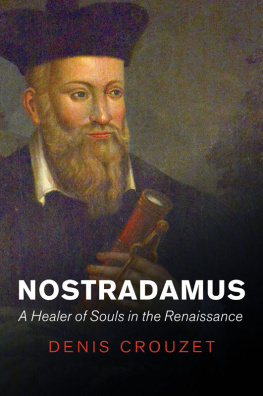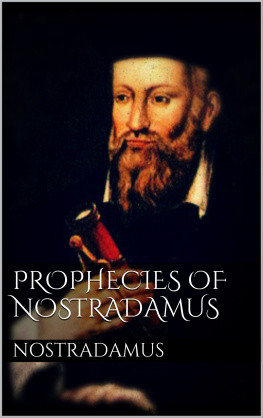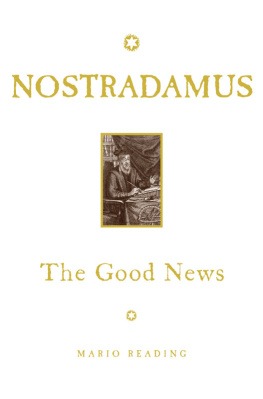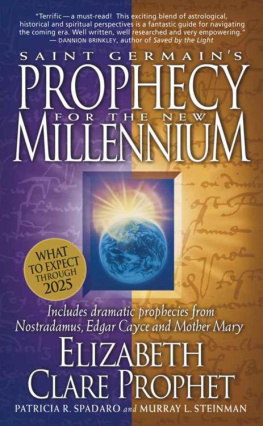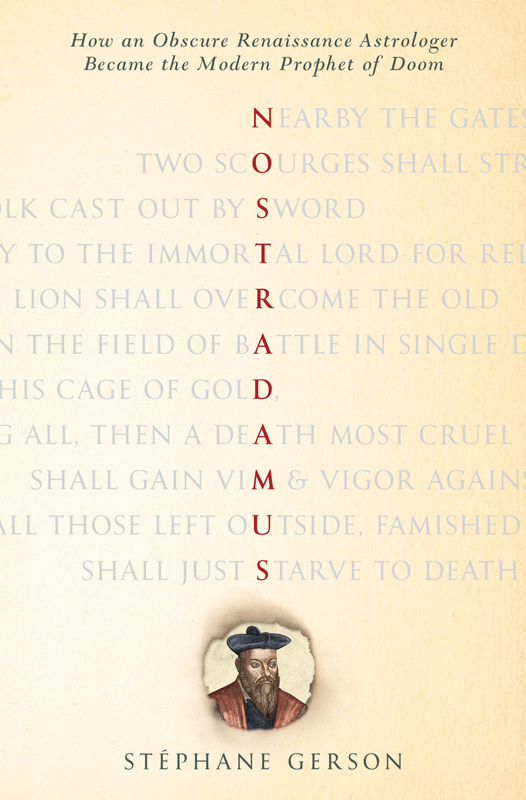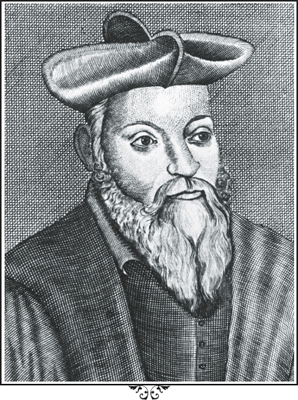
CREDIT COPPERPLATE ENGRAVING
2012 Photos.com, a division of Getty Images.
All rights reserved.
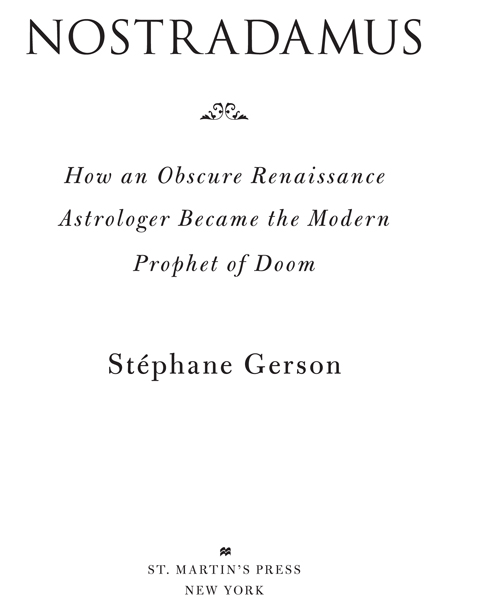
The author and publisher have provided this e-book to you for your personal use only. You may not make this e-book publicly available in any way. Copyright infringement is against the law. If you believe the copy of this e-book you are reading infringes on the authors copyright, please notify the publisher at: us.macmillanusa.com/piracy.
For Julian, with love
In memory of Owen, who saw things others did not
Contents
I want a form thats large enough to swim in,
And talk on any subject that I choose,
From natural scenery to men and women,
Myself, the arts, the European news.
W. H. Auden,
Letter to Lord Byron
The Nostradamus age was there
Cities destroyedjoy driven out.
Jean Cocteau,
Broken Poem for Picasso
Preface
In the wake of 9/11, politicians offered reassurance, firefighters became heroes, and newscasters pulled on-air marathons. The rest of us simply tried to grasp what had happened and imagine what might follow. Enter Nostradamus. Within hours, rumors circulated that he had predicted it all. One widely distributed e-mail contained a prophetic text that spoke of a city burning, a third big war beginning while a great leader succumbed, and two brothers torn apart by chaos. Another evoked a great king of terror and disaster during the year of the new century and nine months. The sky will burn at forty-five degrees and fire shall engulf the world. September was of course the ninth month of the year and New York Citys latitude is forty-one degrees. The message was clear: Nostradamus had foretold the attacks and warned the United States.
By September 12, these e-mails had spread across the country. One hundred of 120 students in one southern California high school received at least one. Several talk shows mentioned Nostradamus and propelled his name to the top of search engines, ahead of Osama bin Laden.
Within four days, Nostradamuss Prophecies had jumped to the top of Amazons best sellers list. Five other books about him cracked the top twenty-five. Its one of those morbid business realities that in times like this people turn to relevant products, explained a company spokeswoman. In one Barnes & Noble store in Brooklyn, twenty customers asked for Nostradamus in a single day. Joanna Jusino, a thirty-two-year-old New Yorker, told a journalist that she had ordered the Prophecies to know what to expect in the weeks to come. Booksellers restocked as fast as they could. The same happened in Hungary, where the Prophecies became a number-one best seller. In England, the Times remarked that Nostradamus was becoming more popular than books on sex. In Singapore, too, people pondered a prediction that seemed to have portrayed the attacks with such accuracy. We were even discussing how it could be a sign that it was the end of the world, explained one media executive. This was no fringe movement. In the midst of global distress, Nostradamus infiltrated mainstream culture.
I could not help but watch in awe. My wife and I lived a few blocks from the World Trade Center at the time, and we evacuated our apartment while the towers burned. Holed up in a hotel room with our sons during the weeks that followed, we nursed our anguish as best we could while time itself grew still and furious. Like others, we participated in candlelight vigils and took in the impromptu memorials at Union Square. Nostradamus was something else: a mysterious lure, an emotional pull that drew so many people to scintillating words that came from another era and yet had never seemed more relevant. I did not consult Nostradamus that September, but I remembered that these predictions had entered my life once before. It happened in Brussels, where I grew up, during the early 1980s. I was fifteen or sixteen, and every magazine seemed to contain an article on his predictions and Soviet missiles flattening Western Europe. Maximum Danger: Summer 1984! blared the French weekly Paris-Match. Strong stuff. I was petrified and mesmerized and did not know what to make of this. But I kept on readingwithout telling anyone.
When the quatrains resurfaced after 9/11, I could thus recall their force. Mostly, I was struck by their prevalence in our own times. Others paid attention as well. Norm Magnusson, a Manhattan-based artist, nailed a copy of the Prophecies to a twelve-foot-high wood beam and called the piece The Feeling Were Entering an Era of Prophecies. It was part of a series on America and the world after 9/11. This sculpture expressed one take on the matterNostradamus as talismanbut it did not limit itself to that. These paroxysms of prescience usually leave me flat, Magnusson wrote in his artists note, but this time they resonated just a bit. Maybe we were entering a foretold era. I didnt believe it, but this time, I didnt just write it off.
I did not write it off either, although like so many people I could barely associate a face with the name. There is a wonderful scene in the first Sopranos episode to air after 9/11 in which mafiosos Tony Soprano and Bobby Bacala catch up over dinner. At one point, Bobby remarks that Quasimodo had predicted the attacks. Tony looks up and replies that he is confusing Nostradamus with the fictional hunchback of Notre-Dame. Oh, right, Notre Damus, says Bobbyat which point Tony interjects that Notre-Dame and Nostradamus are altogether different. Bobby is puzzled and Tony knows little more. Neither do we. All of us have heard of Nostradamus; a few among us are aware that he lived a long time ago. But that is pretty much it. If asked what Nostradamus brings to mind, we might speak of tabloids, crazy people on the street, and other rather strange phenomena in our culture. This is one of the answers I received after posing the question to a class of college students not long ago.
Nostradamus does draw us into a strange universe, full of ghosts, eerie prophets, and ominous forecasts. The strangest thing of all, however, is that Nostradamus and his predictions have become an enduring facet of the modern West. ( Modern refers to the era that came into being during the Renaissance. Historians further distinguish between early and late modern periods, with the French Revolution as the dividing line.) It is rare for a book to speak to successive generations about their world, across national borders, languages, and cultural or political divides. The Bible has had such an afterlife, even if many religions dismiss it entirely. The plays of Shakespeare have had one as well. And so have Nostradamuss Prophecies, a remarkable feat for a work that was written in Old French and obtained little religious or literary recognition in its time and afterward.
I was not drawn to Nostradamus by the prospect of determining whether the quatrains had really rested on extrasensory experience or precognitive information. I would not be the one to determine whether the fire at the earths core truly referred to the burning towers. Instead, I wanted to know where these predictions came from and how they had made it this far. I wanted to understand why they have mattered and continue to matter to all kinds of people. I wanted to recover the humanity and the multiple facets of a phenomenon that has become so diffuse and received such scorn that only a caricature remains. And I wanted to figure out what all of this says about the society that hosts Nostradamus. So it all began.


